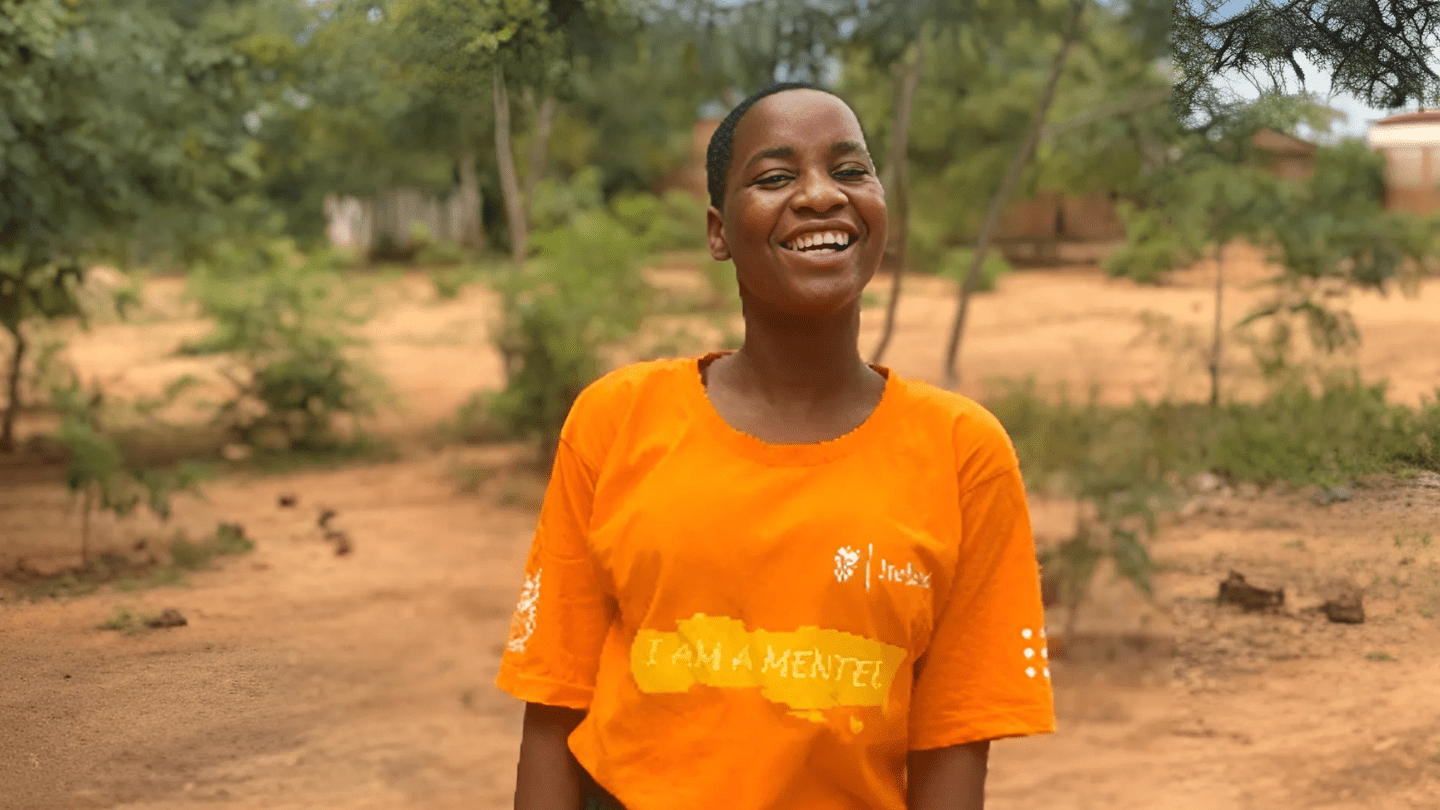“I used to be shy. I didn’t think girls like me could speak up.”
That was before Evelyn Chittah found her voice—and a mobile platform that changed everything.
Just a year ago, Evelyn was shy. The kind of girl who avoided eye contact when adults spoke and only whispered answers in class.
“I used to think some things were not meant to be talked about,” she admits. “Especially periods. Especially by girls.”
That changed the day she discovered the 321 platform, a mobile information service provided through UNFPA through the Technology and Empowerment Enhancing Networks in Safe Spaces.
Curious, Evelyn began browsing the eight available topics using her mother’s old phone. Two topics immediately stood out: menstrual hygiene and gender.
“I kept going back to those two,” she says, “because they speak directly to what we girls go through.”
A Spark Ignited
Through short, digestible messages, Evelyn learned how menstruation works, how to manage it safely, and why conversations around gender equality matter. She began attending her community’s weekly Safe Space sessions, held in a small classroom within the community.
But Evelyn didn’t just sit and listen. She stepped up.
“She was quiet at first,” recalls the session facilitator, Memory Banda. “Then one day, she raised her hand—and she never stopped talking after that.”
Becoming a Voice for Others
Evelyn now leads discussions during the Safe Space gatherings. She shares what she learns with girls in her neighbourhood and even speaks to parents when necessary.
“I talk to my friends about periods and how we can take care of ourselves. Some didn’t even know some of the things I shared,” she says, her voice tinged with pride.
Her home, a modest brick house on the outskirts of the village, has become an informal hub for conversations. Sometimes, younger girls stop by after school to ask questions they’re too shy to raise in public.
Even as attendance at Safe Space sessions has dipped—due to school exams and upcoming graduations—Evelyn remains consistent. She passionately shares the 321 platform with peers in her community, helping them to connect with reliable information and empowering them to expand their knowledge.
Quiet Fights, Big Dreams
But her journey hasn’t been without friction. In a place where many still see topics like menstruation and gender rights as taboo, Evelyn sometimes faces resistance.
Some boys laugh when we talk. Even some teachers don’t take it seriously.
Still, Evelyn isn’t deterred. If anything, she wants more.
“We need more safe spaces to expand the reach of these platforms,” she says, “alongside regular awareness campaigns to ensure communities not only access them, but truly understand how to use them.”
A Generation Rising
Evelyn’s story reflects the core mission of the TEENS project: using digital tools to empower girls in under-resourced communities. Through platforms like WhatsApp chatbots and the 321 mobile service, girls like Evelyn are gaining not only access to knowledge—but the confidence to use it.
“She’s a role model now,” says Memory. “She speaks up—and that makes others feel like they can too.”
As the sun sets over Machinga and the children head home from school, Evelyn returns to her books. She still dreams of becoming a teacher someday. But for now, she’s already doing something just as powerful: she’s teaching by example.


